
From the earliest days of the Cold War, the USA and USSR had nuclear weapons but only one means of delivering a strike - longrange strategic bombers. As the conflict progressed, technological advances changed that. Throughout the 1950s, both superpowers began developing Intercontinental Ballistic Missiles (ICBMs) armed with nuclear warheads which they stored underground in protective silos. In some cases, these missiles had several warheads and were known as Multiple Independent Re-Entrant Vehicles (MIRVS). In addition, both sides also developed Submarine Launched Ballistic Missiles (SLBM) that were harder to track and target because they operated beneath the oceans' surface. Between them, the bombers, ICBMs and SLBMS formed what came to be known as the nuclear triad: a joined-up, combined-forces land, sea and air strategy that mirrored the approach to conventional warfare. The difference, however, was that this was not a strategy designed to win a war, it was designed to prevent one.
Denne historien er fra Issue 138-utgaven av History of War.
Start din 7-dagers gratis prøveperiode på Magzter GOLD for å få tilgang til tusenvis av utvalgte premiumhistorier og 9000+ magasiner og aviser.
Allerede abonnent ? Logg på
Denne historien er fra Issue 138-utgaven av History of War.
Start din 7-dagers gratis prøveperiode på Magzter GOLD for å få tilgang til tusenvis av utvalgte premiumhistorier og 9000+ magasiner og aviser.
Allerede abonnent? Logg på

NAUMACHIA TRUTH BEHIND ROME'S GLADIATOR SEA BATTLES
In their quest for evermore novel and bloody entertainment, the Romans staged enormous naval fights on artificial lakes
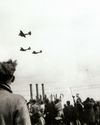
OPERATION MANNA
In late April 1945, millions of Dutch civilians were starving as Nazi retribution for the failed Operation Market Garden cut off supplies. eet as In response, Allied bombers launched a risky mission to air-drop food

GASSING HITLER
Just a month before the end of WWI, the future Fuhrer was blinded by a British shell and invalided away from the frontline. Over a century later, has the artillery brigade that launched the fateful attack finally been identified?

SALAMANCA
After years of largely defensive campaigning, Lieutenant General Arthur Wellesley went on the offensive against a French invasion of Andalusia

HUMBERT 'ROCKY'VERSACE
Early in the Vietnam War, a dedicated US Special Forces officer defied his merciless Viet Cong captors and inspired his fellow POWs to survive
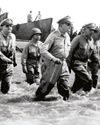
LEYTE 1944 SINKING THE RISING SUN
One of the more difficult island campaigns in WWII's Pacific Theatre saw a brutal months-long fight that exhausted Japan’s military strength

MAD DAWN
How technology transformed strategic thinking and military doctrine from the Cold War to the current day
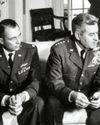
BRUSHES WITH ARMAGEDDON
Humanity came close to self-annihilation with the Cuban Missile Crisis, Broken Arrows’ and other nuclear near misses
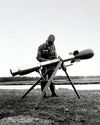
THE DEADLY RACE
How the road to peace led to an arms contest between the USA and USSR, with prototypes, proliferation and the world’s biggest bomb
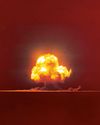
THE MANHATTAN PROJECT
Einstein, Oppenheimer and the race to beat Hitler to the bomb. How a science project in the desert helped win a war